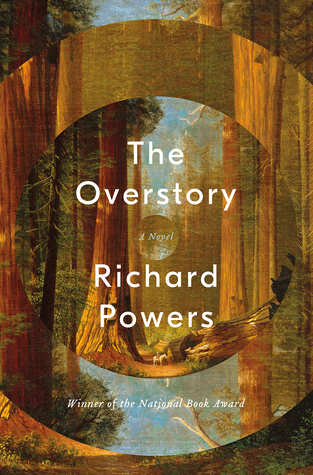The Overstory by Richard Powers
/The Overstory
by Richard Powers
W. W. Norton & Company, 2018
Trees talk in Richard Powers' new novel The Overstory. They talk to each other, and they talk to a handful of humans, and they say things like “Light and water and a little crushed stone demand long answers” or “Long answers need long time … and long time is exactly what's vanishing” or “The world is turning into a new thing.”
This is, needless to say, an exorbitant risk for any author to take, even one as popular and critically acclaimed as National Book Award-winning Powers. If you write a long book in which trees talk, you run the risk looking silly, which is the green kryptonite of serious fiction. Likewise if you preach, you run the risk that your preaching will outstrip your storytelling – if it doesn't, you have a work of mind-changing art like Uncle Tom's Cabin, but if it does, you're stuck with a leaden piece of polemic like The Jungle.
The preaching risk is compounded in The Overstory even before the narrative begins. On the book's copyright page, readers are told that the whole thing is printed on 100 percent recycled paper, which saved “408 trees, 393, 576 gallons of water, 132, 288 pounds of greenhouse gas emissions, and 40, 272 pounds of solid waste.” In the face of such data, whither book reviewing?
“The world had six trillion trees, when people showed up,” a character observes in these recycled pages. “Half remain. Half again will disappear, in a hundred years. And whatever enough people say that all these vanishing trees are saying is what, in fact, they say.”
A handful of characters in The Overstory become convinced, to varying degrees of personal shock, that trees are talking to them. There's Douglas “Fir” Pavlicek, a toughened veteran; there's Nick and Olivia, who engage in a series of confrontations with redwood loggers; there's Neelay, a tech-whiz looking to green the world with ecology 2.0; most movingly there's Dr. Patricia Westerford, a biologist who bears several of the tell-tale signs of being Powers' foremost author stand-in, a figure crying out against the cynics about the endangered soul of the world's respiratory system. Powers reputedly spent a good deal of time in out in the glory of the California redwoods, and whenever Dr. Westerford does that, her perceptions change in born-again ways:
… she turns back outside, into the woods, the green negation of all careers. She no longer theorizes or speculates. Just watches, notes, and sketches into a stack of notebooks, her only persistent possession aside from clothes. Her eyes go near and narrow … The particle of her private self rejoins everything it has been split off from – the plan of runaway green.
That “plan of runaway green” wavers in and out of focus throughout The Overstory, which too often has the breathlessness of all over-zealous fiction – one of the signs of which is always the distrust of fiction itself. Are the trees here trees, or are they tree-shaped narrative tools? Is the wisdom they impart translated from the heart of their ancient, silent world, or is it the artificial construct of the dippy, trippy humans communing among them? Powers very deliberately refuses to settle the question; he gives those fortune-cookie “the world is turning into a new thing” pronouncements, but he also calls them into question:
The man with his head sticking out of the tent asks himself: What are those treetops like? They're like that cog-toothed drawing toy, spinning out surprise patterns from the simplest nested cycles. They're like the tip of a Ouija planchette, taking dictations from beyond. They are, in fact, like nothing but themselves. They are the crowns of five white spruces laden with cones, bending in the wind as they do every day of their existence. Likeness is the sole problem of men.
The handful of tree-chosen go through some pitched adventures that are, in their raw energy, very reminiscent of the clashes with the law in Powers' previous book, Orfeo, and then, intriguingly, the narrative gently moves on and eventually finds some of them looking back at their own adventures and wondering what it all meant.
Readers of The Overstory will certainly know how that feels. The book is saved from being simply silly by sheer dint of Powers' staggering writing talent – but it's saved only barely, and no amount of writing talent can disguise the pamphleteering tones. Very likely this is intentional on the author's part, a reflection of his heightened ecological awareness. But it results in something intensely strange: a novel by Richard Powers that feels distracted.
Steve Donoghue was a founding editor of Open Letters Monthly. His book criticism has appeared in the Boston Globe, the Wall Street Journal, and the American Conservative. He writes regularly for the National, the Washington Post, the Vineyard Gazette, and the Christian Science Monitor. His website is http://www.stevedonoghue.com.
